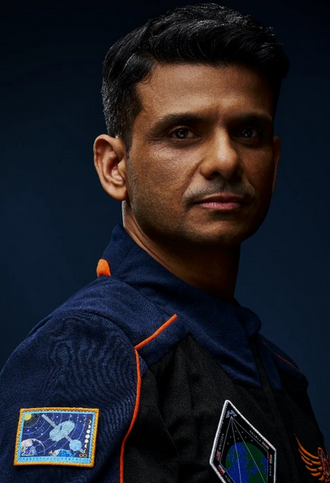New Delhi– Group Captain Shubhanshu Shukla, one of India’s top spaceflight candidates, will conduct a series of critical scientific experiments in space as part of an international mission, Union Minister of State for Science and Technology Dr. Jitendra Singh announced on Tuesday. Calling it a moment of national pride, the minister emphasized that Shukla’s defined scientific role marks a significant milestone in India’s growing presence in global space exploration.
Dr. Singh, who also oversees the Prime Minister’s Office and the Department of Space, said Shukla’s research will span diverse scientific domains, including physiological, cognitive, and physical responses in microgravity. One key focus will be the impact of prolonged electronic display exposure—an issue relevant for future long-duration space missions.
Shukla will also study skeletal muscle dysfunction in zero gravity and test potential therapeutic interventions. Another experiment will involve extremophiles such as tardigrades—microscopic organisms known for surviving extreme environments. These studies could yield valuable insights into how life might adapt beyond Earth.
Group Captain Shukla is one of four astronauts selected for India’s upcoming Gaganyaan human spaceflight mission, slated for launch in early 2027. Before that, he will participate in the Axiom-4 mission to the International Space Station (ISS), with Group Captain Prasanth Nair serving as his designated backup.
Dr. Singh noted that plans for sending an Indian astronaut to the ISS were discussed during Prime Minister Narendra Modi’s recent visit to the United States. He credited post-2014 policy reforms—such as opening Sriharikota to the public and encouraging private sector participation—for positioning India as a leader in the rapidly evolving NewSpace economy.
Regarding Gaganyaan, the minister confirmed that trial phases are underway and progressing steadily. Once completed, the mission will mark a major step toward India’s goal of becoming truly Atmanirbhar (self-reliant) in the space sector.
“These scientific experiments are potential game-changers that will significantly strengthen India’s space ecosystem,” Dr. Singh said.
India’s space economy, currently valued at $8 billion, is projected to grow to $44 billion in the coming years, aligning with the government’s Viksit Bharat @2047 vision for a developed India.
Beyond space, the minister also highlighted the Deep Ocean Mission, aimed at unlocking the economic potential of India’s vast marine resources, and emphasized the government’s commitment to clean energy. This includes expanded funding for nuclear research and the development of Bharat Small Modular Reactors, which are vital to achieving India’s Net Zero emissions target by 2070. (Source: IANS)













